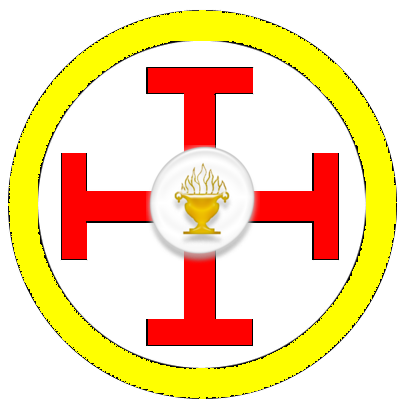 |
Serving the divine one who rules for all
|
 |
Serving the divine one who rules for all
|
Chrestomazdaism in comparison to MithraismIn Zartian Mithraism two brothers Magtus and Chrestus are considered twin saviours of mankind. They echo ancient myths of twin saviour horsemen - the Aspinas. Magtus strives to develop his full human potency - to become mighty, to become 'the best'. His values echo those of classic pagan nobility.In contrast, but not necessarily in opposition, Chrestus strives to be 'useful', to be 'good', to be 'the servant' of mankind in general and of the individual people he comes across in particular. Chrestomazdaism promotes the path of Chrestus rather than Magtus. Our aim as Chrestomazdeans or Zartochrestians is to become 'Chrestomorphic' (in the 'shape' or character of Chrestus) so that we become agents of Chrestus in the world. Chrestus is a divine power who rises above any individual person. Nevertheless Chrestomazdeans venerate a saintly trinity who embody aspects of the nature of Chrestus. These are Zartus, Jesus and Georgius. Zartus in particular represents the intellectual nature of Chrestus, Jesus especially embodies the loving spiritual nature of Chrestus and Georgius represents the courage of Chrestus. Zartochrestians also recognise the Tetramagi or 'four wise men' as primary teachers of the philosophy of the Good. These are Zartus, Gotama, Plato and Aristotle. Chrestomazdeans value what we call the 'Jesuchristian' scriptures - roughly the New Testament and other scriptures of the same era that may be called gnostic. However we don't consider the Hebrew Scriptures (the 'Old Testament') to be Christian writings, although we respect that there is much wisdom within them. Differences between Chrestomazdaism and Zartian MithraismChrestomazdeans strive to attain the nature of Chrestus; Mithrites to attain the nature of Magtus.Chestomazdeans venerate first the Holy Trinity; Mithrites venerate several different groups of prosopa, often seven in number. Chrestomazdeans venerate a list of 3 saints which is not part of Mithraism. Zartochrestians respect a list of '4 wise men' the Tetramagi (Zartus, Gotama, Plato, Aristotle). Mithrites have a list of 7 - the Heptamagi. In Chrestomazdaism the concept of God is fundamental. This is the same for some Mithrites, but others are more polytheistic. Chrestomazdeans regard themselves as Zorochristians and recognize a kinship with the Abramochristian tradition. While they don't consider the Bible as a sacred text in the same way as Abramochristians, they do take an interest in the writings of more modern Abramochristians especially those in the 'natural law' tradition or grounded in the work of Plato or Aristotle. Zartian Mithraists by contrast see themselves continuing the tradition of the nobility of pre-Christian or non-Christian cultures especially that of ancient Persian, Greece or Rome. Chrestomazdeans tend to adopt a spirituality and ritual from the Abramochristian tradition. Zartian Mithraists tend to adopt a non-christian spirituality. Their formal ritual is inspired by that of traditional Zoroastrians. Personal spirituality is generally Buddhist or Stoic in terms of adopting a noble temperament, but also a more Heathen or Nietzschean spirituality in terms of striving for self-improvement. May 4025 ZHE , updated July 4025 |